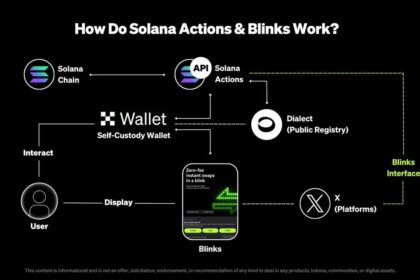The Lithuanian Financial Crime Investigation Service (FNTT) has announced that it has fined the cryptocurrency payment service Payeer a record 9.29 million euros (about $10 million) for violating Anti-Money Laundering regulations. This penalty marks the largest ever imposed on a virtual asset service provider in Lithuania. The FNTT accused Payeer of allowing its customers to transfer funds to sanctioned banks, highlighting a significant oversight in the company’s operations.
Payeer, which operates as both a crypto exchange and an e-commerce payment platform, faced scrutiny for its handling of customer transactions. According to the FNTT, Payeer failed to adequately verify the identities of its customers and facilitated money transfers in Russian rubles through sanctioned Russian banks.
The agency stated, “‘Payeer.com’ through which the company belongs to its customers, mainly from Russia, allowed transactions to be carried out by Russian rubles, transferring them from and to Russian banks sanctioned by the European Union.” This activity reportedly occurred over a period of more than 1.5 years, during which Payeer served at least 213 thousand customers and generated revenue exceeding 164 million euros.
In addition to the hefty fines, which included 8.23 million euros for violations of international sanctions and 1.06 million euros for breaches of the Law on the Prevention of Money Laundering and Terrorist Financing (PPTFP), the FNTT attempted to engage with Payeer to cease the sanctioned transactions. However, the agency reported that Payeer “did not cooperate, did not provide clarification.”
Payeer has the right to appeal the decision. Still, the incident underscores a growing trend where governments are intensifying efforts to regulate crypto exchanges that do not comply with established financial laws.
Payeer Lithuania Fine: A Costly Oversight
Payeer, known for enabling users to send and receive money in various digital currencies like Bitcoin (BTC) and Ethereum (ETH), got into trouble with Lithuanian authorities. The fine was issued because Payeer allegedly failed to adhere to international sanctions. These sanctions prohibit financial dealings with certain banks, and by allowing transactions with these entities, Payeer breached critical regulatory requirements.

The investigation into Payeer’s activities began when discrepancies were noted in transactions processed through their system. It was discovered that Payeer did not sufficiently screen the destinations of these funds, leading to transfers to accounts in sanctioned banks. The oversight posed significant legal risks and raised concerns about the effectiveness of Payeer’s compliance systems.
For investors and users of cryptocurrencies like Bitcoin and Ethereum, this situation highlights the risks associated with platforms that do not strictly adhere to financial laws. Users must conduct thorough due diligence on the platforms they use to ensure compliance with all legal standards.
This case has also prompted responses from various stakeholders in the crypto community. The BIT Journal suggests staying connected for more updates as the situation develops and further implications for the market become clear.
Looking Ahead on Payeer Lithuania Fine
As digital currencies continue to evolve, the regulatory landscape is expected to become more complex. The Payeer Lithuania fine is likely just the beginning of increased scrutiny on cryptocurrency platforms, particularly those operating in or catering to European markets. Investing in compliance and regulatory technology will be crucial for companies in the digital currency space.
This event underscores the importance of compliance in the financial sector, especially in areas as innovative and rapidly changing as cryptocurrency. While digital currencies offer a new frontier of possibilities, they also require new levels of responsibility and oversight. Moving forward, ensuring that these technologies are used safely and legally will be paramount for the continued growth and acceptance of cryptocurrencies like Bitcoin and Ethereum.
For the latest updates Payeer Lithuania fine and to ensure you remain compliant with emerging regulations, keeping informed through reliable sources like The BIT Journal can provide both insights and foresight in this dynamic market.




























